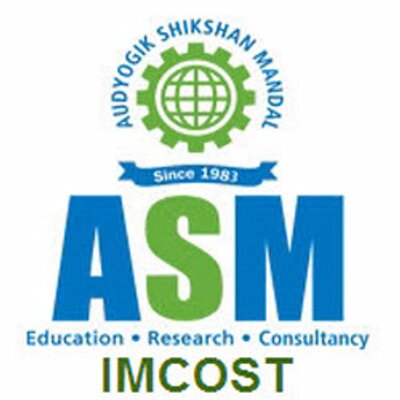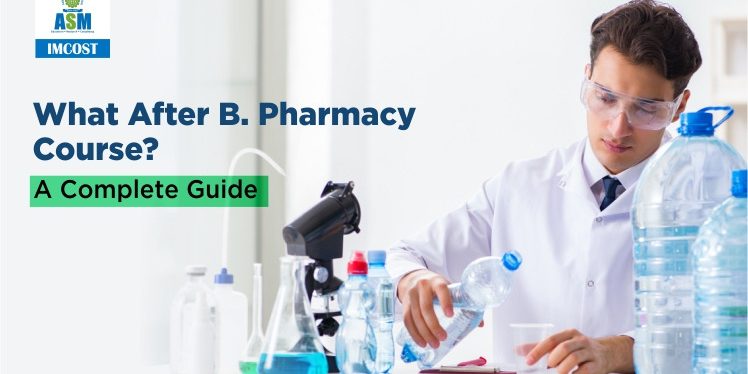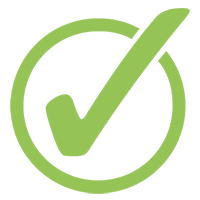What after B. Pharmacy Course?
So, you’ve done the Bachelor of Pharmacy degree course, and are now wondering what to do next? This is a question that is on many B. Pharm graduates’ minds. B. Pharma is an excellent bachelor’s course. Pharmacy is one of the most important industries in the country. The best example of this is that even during the strict COVID-19 pandemic lockdown, pharmacy businesses and shops were allowed to operate because they are a necessity. This industry is considered to be recession-proof, and will also be the saviour of humanity in case of another pandemic. So, you have done a smart move by doing B. Pharma. But what next, now?
You have 3 viable options. You can study further, and get a higher education. You can start working as there are many jobs for B. Pharm graduates, or you can also start your business. In the following blog, let’s take a close look at all the options available to you, and you can decide what you should do after B. Pharm
Best Career Options after B. Pharmacy
B. Pharm is one of the few degrees that allow students to have many options after graduation. Though mainly this is an advantage, it can also confuse you. Therefore, to get rid of this confusion, you should have all the information you can on all your options after B. Pharm. This will help you see your career path better. Here are your career options after B. Pharm.
A) Higher Studies After B. Pharmacy: Which Course is Best After B Pharmacy?
One of the most popular options is to continue studying. Sometimes, a bachelor’s degree is not enough. Many postgraduate courses let you concentrate on studies in a more specialised field in pharmacy. These courses also allow students to get better career opportunities in managerial positions. The following are the most popular postgraduate courses to do after B. Pharm: –
Long-Term Courses After B Pharmacy:
After completing a Bachelor of Pharmacy (B. Pharm.) degree, individuals have the option to pursue various long-term courses to advance their career prospects and deepen their knowledge in specialized areas of pharmaceutical sciences. These courses provide opportunities for further specialization, skill development, and staying abreast of advancements in the field. By undertaking long-term courses, B. Pharm. graduates can enhance their competitiveness in the job market and pursue rewarding careers in the pharmaceutical industry and related sectors.
1. PGDM in Pharmacy:
This is an excellent course to do after B. Pharm. A PGDM in pharmacy or PGDM in pharmaceutical management is a 2-year course that’s more industry-oriented and imparts practical knowledge. The course is designed to make students industry-ready the moment they finish their course. This degree will get you a management job in the pharmacy industry. You can also use the knowledge gained to become an entrepreneur after an appropriate amount of experience.
2. Master of Pharmacy:
This is the next step after B. Pharm. Master of Pharmacy is also known as M. Pharm. Quite a B. Pharm graduates choose to do this course, as it allows them to choose a specialised field in pharmacy. This course allows students to head in a particular direction and become an expert. M. Pharm is a 2-year degree course and can lead to good careers.
3. M.Sc. Pharmaceutical Chemistry:
This course involves a deep study and understanding of drug development. This course is more scientific in nature and is a mix of theory and practical. You delve deep into the scientific aspect of pharma chemistry. During the course, and your career, you will be spending a lot of time in the laboratory. You should be good with research, experimentation, and development. Your work can also make a huge difference, as you will contribute to finding life-saving drugs.
4. MBA in Pharmaceutical Management:
The MBA in pharmaceutical management is a course about the science and technological aspect of pharmacy and business and marketing. There’s a lot of research and management involved in this degree, and the subsequent career. It is a 2-year course that will land you a job in managerial roles with good pay and benefits.
Short Term or 6 Month Courses After B Pharmacy:
After obtaining a Bachelor of Pharmacy (B. Pharm) degree, individuals can also explore short-term courses to complement their education and enhance their skill set. These short-term courses typically focus on specific areas within pharmaceutical sciences or related fields, providing practical knowledge and specialized training.
1. Drug Store Management Course:
This course is both a postgraduate course and a stepping stone to starting your own business. The whole course is designed to teach students how to manage a drugstore business. In an age where single drug stores are growing into widespread franchises, this is an important course. You can start your drugstore, or find an important position in a big drugstore chain. This is a course for people who are sure about entering the drugstore business.
2. Clinical Research:
A one-year course that teaches skills for designing and managing clinical trials. Clinical research is a health science field that focuses on the safety and efficacy of medicines on humans.
3. PG Diploma in Clinical Trial Management:
A six-to-12-month course that provides tools and skills to break into clinical research and other related fields. This program equips graduates with the knowledge and expertise needed to effectively manage clinical trials, ensuring compliance with regulatory requirements and ethical standards.
B) Self-Employment/Business Prospects
One of the main advantages of B. Pharm is that it is one of the few bachelor’s courses that is good enough to allow the student to start their own business. The main businesses most B. Pharm students opt for are, opening a drugstore, being a drug wholesale supplier, and starting a drug manufacturing unit.
In India, you cannot start these businesses unless you have a B. Pharm degree. It’s a lot easier to open a drugstore and start a drug wholesale supply business. The capital investment is also not very high. Starting a drug manufacturing unit is tough, but the earnings from this business are high. Plus, India is the hub for drug manufacturing and generic drug production. So, it can be considered.
C) Best Jobs after B. Pharmacy
B. Pharm is an excellent degree that is professional and career-oriented. So, right after graduation, you can get a job that pays well. Many students choose this option and start working after graduation. Here are some jobs you can do after B. Pharma: –
Government Jobs After B Pharmacy in India:
B. Pharma graduates possess numerous avenues for securing government jobs across esteemed organizations like the Central Drugs Standard Control Organization (CDSCO), Indian Council of Medical Research (ICMR), and State Pharmacy Councils. These roles encompass positions such as Drug Inspector, Pharmacist, Research Associate, and Analyst. These government opportunities offer a stable career path, appealing salary packages, and a meaningful chance to contribute to the nation’s healthcare system. By engaging in roles that focus on drug regulation, medical research, and pharmaceutical analysis, B. Pharmacy graduates play a crucial role in ensuring public safety and well-being.
1. Drug Inspector:
Once a drug gets approval for sale to the general public, the drug inspector’s job starts. They have to ensure that drugs are manufactured properly and are packaged safely. They are responsible for the quality of the product and packaging. They also have to do regular checks for the quality of the drug and efficiency in the manufacturing process. Drug inspectors work in drug manufacturing units and have a very important job.
2. Clinical Research Associate:
Clinical research is one of the most important aspects of the pharma industry. Therefore, the career of a clinical research associate is important to the cause. They are an integral part of the clinical research process. Formulation, testing, developing, experiments, reporting, documentation, etc., the clinical research associate is a part of every process and works under the scientists conducting the research.
Private Jobs After B Pharmacy in India:
After earning a Bachelor of Pharmacy (B. Pharm.) degree, graduates can explore diverse private sector job opportunities within the pharmaceutical industry. Roles include Production Manager, Quality Control Analyst, Regulatory Affairs Specialist, and Sales and Marketing Executive. These positions involve tasks such as overseeing manufacturing processes, ensuring regulatory compliance, managing product quality, and promoting pharmaceutical products. Contract research organizations (CROs) also offer opportunities in clinical research, pharmacovigilance, and clinical trial management. The private sector provides competitive salaries, career advancement prospects, and opportunities for contributing to pharmaceutical innovation and healthcare advancements.
1. Community Pharmacist:
The community pharmacist is your local pharmacist who provides medicines to the general public. This is one of the most important jobs. You have to be careful of the government’s strict rules and regulations while carefully checking prescriptions and dispensing medicines. Many B. Pharm students opt for this as this is a people-oriented profession and pays well. You can have your own drugstore as well.
2. Hospital Pharmacist:
The hospital pharmacist, just like the community pharmacist also dispenses medicines, but they are responsible for dispensing medicines in a hospital. They are in charge of the hospital’s internal drugstore and have to give out medicines to the nurses based on doctor’s orders. They have to manage inventory, keep a track of the drugs, keep a record of the prescriptions, restock drugs, manage other employees in the drugstore, and make reports for the hospital management. This is quite a responsible job profile.
3. Quality Control Associate:
The title of this career is definitive of what is expected from this professional. There are many stages in the life of a drug. From formulation to the finished product, the quality control associate is the one responsible for maintaining the quality and safety of the drugs. Quality control associates also have to make comprehensive reports. They can even create their evaluating and inspecting methods to ensure the quality of the drug is maintained.
4. R&D Scientist:
All the medicines and vaccines we have today are thanks to research & development (R&D). The R&D scientist is one of the most important jobs in the pharma industry. Their job entails researching diseases and developing their cures, re-evaluating old drugs and creating better formulations, researching and developing vaccines, having a deep understanding of chemistry and biology, conducting animal and human trials, writing reports on medical findings, are just some of the main expectations of R&D scientists.
5. Formulation Development Associate:
Very rarely does the first formula of drug work. It’s the main job of the formulation associate to help in the development of the drug. They have to conduct in-depth studies, trails, experiments, and more to make better formulations. Their job ensures that we keep getting better medicines over time that are more effective and have very few side-effects. This is an important job profile worth considering.
6. Medical Representative:
Medical representatives (MR) are professionals hired by pharmaceutical companies who meet with doctors to inform them of the new drugs their company has launched in the market. They are like marketing executives of the company’s products. This is an important job because MRs are the ones responsible for creating sales of manufactured drugs. They need to have a deep understanding of all the drugs their company produces.
7. Sales & Marketing Representatives:
This position is similar to an MR, but some companies require MRs to have management degrees. Sales & marketing representatives are also responsible for the sale of their company’s drugs. But they, not only market, but they also take orders. They meet with doctors, hospital and clinic management, pharmacists, etc. to take orders of the drugs. They have to ensure the drugs are supplied properly and there are high sales. A pharma company’s success is dependent on good sales & marketing executives.
8. Science Writer:
News agencies, magazines, online media companies, etc. are always on the lookout for science writers who have a deep understanding of the pharmaceutical industries and other science-based industries. Your job would be to research and write blogs, articles, news reports, reviews, etc. on the pharma industry and other related topics. You need to have a good command over the written language and a flair for writing.
Skills Gained after B. Pharmacy
A Bachelor of Pharmacy (B. Pharm) degree is a gateway to numerous fulfilling career paths within the pharmaceutical and healthcare sectors. Through rigorous coursework and hands-on experience, graduates develop a diverse set of skills that are highly sought after in the industry. Some of these valuable skills include:
- Hard skills: Graduates gain proficiency in filling prescriptions accurately, calculating doses precisely, and recalling vital information about drug therapy.
- Analytical skills: They develop the ability to understand the side effects of different drugs and conduct research to explore their applications effectively.
- Technical skills: Graduates become adept at using cutting-edge tools and equipment in pharmacy laboratories, enhancing their capabilities in pharmaceutical research and development.
- Communication skills: They hone their verbal and non-verbal communication skills, enabling effective interaction with patients, healthcare professionals, and colleagues.
- Management skills: Graduates acquire essential managerial skills, especially if they assume supervisory roles, manage patient care, and maintain accurate records.
- Multi-tasking skills: They become proficient in handling multiple tasks simultaneously, including interpreting prescriptions, selecting appropriate medications, and ensuring accurate labelling.
These skills, acquired through comprehensive education and practical experience, prepare B. Pharm graduates for success in various rewarding careers, contributing to the advancement of pharmaceutical science and improving patient care.
Salary After B Pharmacy in India
After completing a B. Pharm degree in India, graduates can expect a range of salary prospects as they enter the pharmaceutical sector. Initially, entry-level positions like Medical Representative or Quality Control Analyst offer starting salaries between INR 2.5 to 4.5 lakhs per annum.
However, as professionals gain experience and possibly pursue further qualifications such as postgraduate degrees or specialized certifications, their earning potential expands. Roles in research and development, pharmaceutical marketing, or clinical trials management offer higher salaries, typically ranging from INR 6 to 10 lakhs per annum or more, depending on expertise and employer.
Specializing in areas like drug formulation or pharmaceutical management can further boost earning potential, with salaries potentially exceeding INR 15 lakhs per annum. Continuous learning and staying updated with industry trends are essential for maximizing earning potential and building a rewarding career in the pharmaceutical field.
Related Blog: Pharmacist Average Salary in India 2021 – The Complete Guide
Why Consider Higher Studies After B. Pharma?
Most experts suggest that it would be better to pursue higher studies after completing B. Pharm, and there are many reasons for this. Here are some reasons why you should consider further studies after B. Pharm: –
1. In-depth Knowledge:
Though you gain a lot of knowledge and understanding in your B. Pharm degree, in higher education, you get even more concentrated knowledge. You will become an expert in your field of study if you choose to study further.
2. Better Career Prospects:
Postgraduate studies always lead to better career prospects. You will most likely start in a managerial position, or even if you don’t, you will get promoted faster. Study further to have a great career.
3. Better Financial Prospects:
With better jobs comes better money. Since you are going to be working in better careers, you will have a much higher pay package with additional benefits. Who wouldn’t want that?
4. Trendy:
The days of merely being a graduate are over. Everyone wants to study further to increase their knowledge, pick more skills, and be the best possible professional they can be. The current competitive professional world demands it.
5. Helpful for Business:
All the reasons given are for students interested in jobs, but the truth is further studies are also helpful for students wanting their own business. In courses like PGDM in pharmacy, you will gain knowledge that will help you start and successfully run a business.
Why Choose PGDM in Pharma after B. Pharmacy?
The PGDM in pharmacy is the best course you can do after B. Pharm. The strong base you have made and the understanding of the fundamentals of pharmacy will be further developed in the PGDM in pharma. Along with academic development, this course will also result in personality development.
The PGDM in pharmacy is a course approved by the AICTE, and the curriculum has been curated by experts in the education and pharmacy field. This course will give you the best job you can get and even knowledge and experience to start your business. So, choose this course after B. Pharm and get an excellent career.
If you still want a few more reasons to choose PGDM in pharmacy, check out the blog link below:
5 Reasons to Choose A PGDM in Pharmaceutical Management
Conclusion
B. Pharm is a wonderful degree that gives you the luxury of choice. You can study further, start your business, or immediately start your career. And there are so many great professions to choose from. The choice is yours! However, it is highly recommended that you study further and get the best out of the knowledge and expertise you have gained from your B. Pharm degree.
Since a PGDM in pharmacy is the best thing to do after B. Pharm, why not also do it from the best institute. ASM’s IMCOST has an amazing PGDM in pharmacy program that you should check out. It’s always better to get experience first-hand, so get in touch with the counsellors directly or through the website to know more about the PGDM in pharmacy course and its advantages. Get in touch today!


